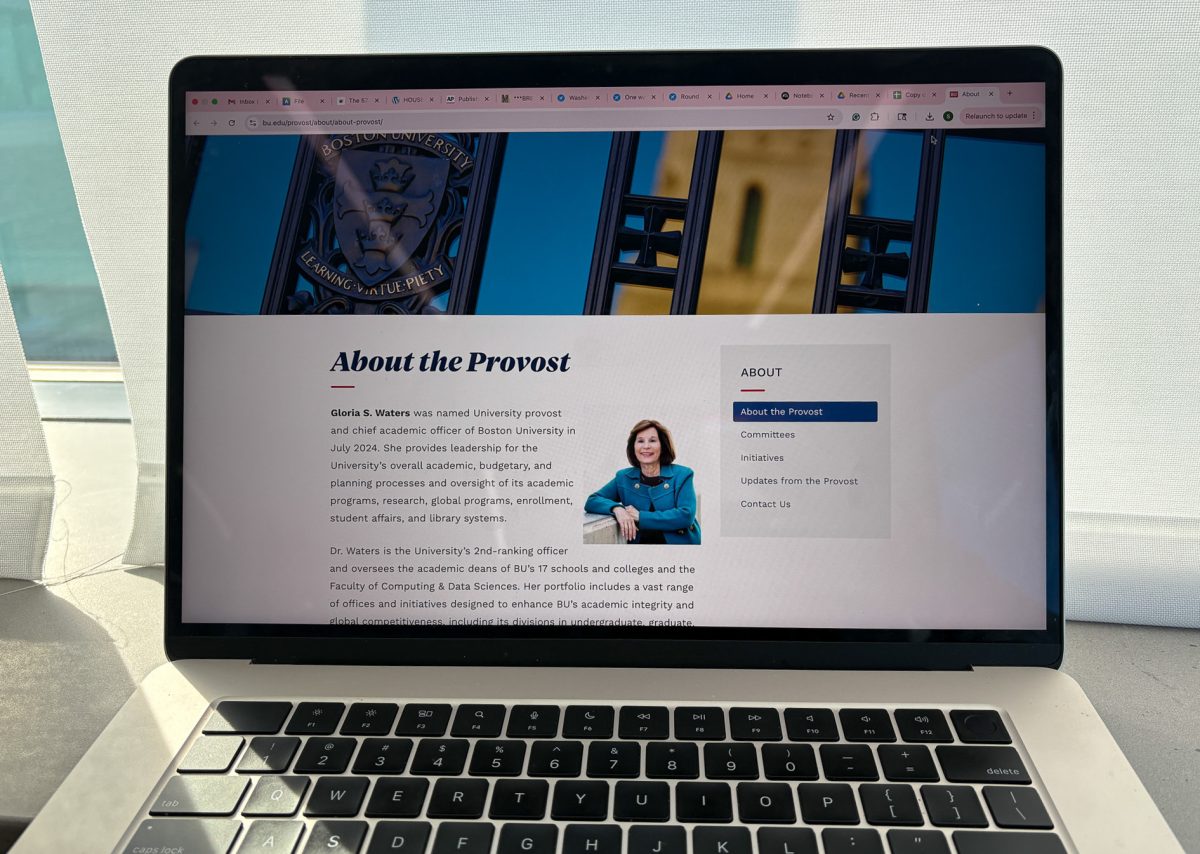Boston University students traveling up and down campus on the Green Line are given many opportunities to hear the famous Boston accent.
‘This train will go express to Pah-kad’s Cah-nah,’ an MBTA train conductor will commonly announce, not only annoying patrons requiring a stop somewhere in between, but also reminding transplanted Bostonians of the city’s distinctive accent.
Despite living in Boston for four or more years, hardly any of the thousands of students that fill the city take on the notorious accent, BU linguistics professor Jonathan Barnes said.
‘It makes sense that they don’t [change their accent] because they are only talking to students,’ Barnes said.
In order to fit in, ‘you’ll take on the behaviors, mannerisms and speaking habits of any community,’ Barnes said. For students trying to fit in with other students, it is less likely they will take on thick Boston accents, he said.
Accent development begins within a child’s first year, BU speech, language and hearing sciences professor Elizabeth Gavett said.
‘The way we speak is developed in context as we’re growing up,’ Gavett said.
Developing a native accent can only occur prior to puberty, Gavvet said. Once that time has elapsed, a person’s accent becomes more stable and less likely to change because of environment, Gavett said.
It is extremely unlikely that a young adult attending BU will develop a native-sounding Boston accent, she said.
‘Even if you were immersed in a local Boston context, it could certainly be modified, but the greater likelihood is that your own accent would be maintained,’ she said.
People develop accents based on the people that surround them, Kristine Strand, the Sargent College of Health and Rehabilitation Sciences speech, language and hearing sciences department interim chairwoman, said. The less formal the situation, the more likely a person will try to relate to another through speech and accent imitation, she said.
‘Boston University has such a national and international student body, that you’re less likely to hear the true Boston accent,’ Strand said. ‘If you attended a school with a local Boston population, you’d be more likely to pick it up.’
The same holds true for BU students studying abroad. School of Management junior Tiffany Huynh, who studied abroad in London in fall 2007, said her accent did not change despite her time living there.
‘We didn’t hang out with English people enough,’ Huynh said.
College of Communication junior Brian Sisney, who also spent a semester in London in fall 2007, said his accent also did not change because he did not immerse himself socially with British people.
‘ ‘I can just do a better impression now,’ he said. ‘But everyone who’s British will tell me it’s not very good.’
Sisney said he managed to pick up more colloquialisms than the actual accent.
‘Sometimes, if I meet someone British, the way I speak will change slightly, but then I catch myself,’ Sisney said.

























































































































Karl Case • Aug 3, 2010 at 2:21 pm
Oh, BJ, you’re the best!